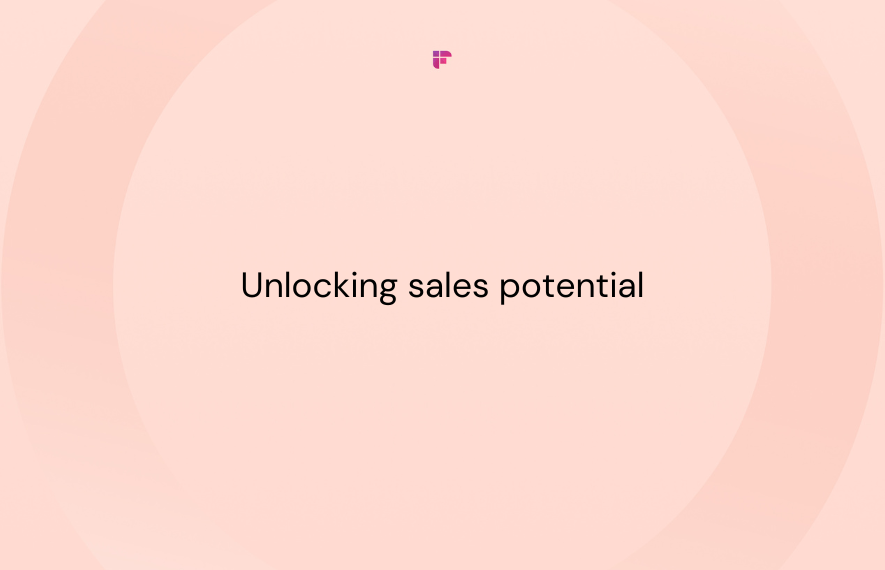A perfect sales pitch can be ruined if you don’t know how to handle objections in sales.
When you’re working as a sales rep, you try to close as many deals as possible. The journey starts with prospecting, discovering, following up, and finally closing. But it’s not all a straight road. And the main hurdle that can defeat a sales rep is an inability to handle objections in sales.
“Now isn’t a good time.”- Your Ideal Prospect.
Even if you have mastered your sales pitch to the nth degree, adverse situations can still arise. Working tirelessly to find a prospect, getting him on call, and facing objections can make you feel lost.
What are Objections in Sales Process?

Objections in sales are the reasons given why a prospect isn't willing to buy a product or service from a sales rep.
You must remember that sales objections are not a hard No. Mostly, these objections will have an issue that indirectly translates to a No.
Sales objections are a good sign. Instead of a straight No, the prospect took time to explain the reason.
If you handle objections in sales well, then it's an excellent opportunity to close the deal. A perfectly executed objection handling can turn a lost deal into a big win. It can address the issues of the prospect or alleviate their concerns.
Not handling a sales objection is a common sales mistake that may force the pipeline to crumble eventually. It’s your job to understand what’s going on with the prospect—and help address the issues with a definitive solution.
Before moving on to why it is vital to handle objections in sales, let’s look at its types.
Types of Sales Objections—Sales Objections Every Rep Must Know

Here are some common objections that occur in the sales cycle:
Price Objection
“Your product costs me twice as much as other alternatives.”
Lack of budget is the most common objection in sales. It is because every purchase has a financial risk associated with it. You’ve to remember that prospects think more than twice before investing money in a product.
Pricing objection in sales (36%) is one of the prominent challenges that SDR faces today—Hubspot research.
As a sales executive, it’s your job to build conversation upon that objection. You can consider pitching your product such that it demonstrates value. In short, you can focus on delivering the risk vs. reward context.
Company or Source Objection
“You may be doing the best you can, but I’ve never heard of your company’s product or services. Why should I trust you?”
People prefer to buy things from someone they know and trust. Often, a sales rep hears that the prospect doesn’t believe in the product or company. Only 3% of buyers believe the representatives.
There are two ways in which prospects could have discovered your company and its product. Either, they previously interacted with your content. Or found the product through a sales call. Thus, before rectifying the objection, delve into the source of skepticism.
Related:

Change Objection
“But I’ve always used that. It’s been like that for ten years.”
A sudden change is hard for most prospects. There is always a fear of what can go wrong. Moreover, the thinking is, ‘if everything is going right with my current product, why should I risk it?’. Handle this objection in sales by digging deeper into the fear and explaining the product's positive impact.
Need Objection
“I don’t think this can be helpful to me.”
This sales objection may sound like a clear No, but it’s an excellent opportunity. If a prospect shows disinterest in a product, you need to discover more about the reasons behind his lack of interest. You can use questions to find if the prospect is a fit or not.
Influence
“I need to convey this to my friend/wife/business partner/ manager before I can do anything.”
This is a common sales objection raised by the gatekeepers. These prospects pass the buck before making any decisions. “I don’t have the authority'' is another form of external influence objection.
Time Objection
“But the solution to that problem isn’t urgent to me right now.”
This sales objection may indicate wrong timing or a simple brush-off. The main aim should be to find the cause for the lack of urgency. Dig deeper to know if the timing isn’t right or the prospect is simply postponing taking any action.
Product/Service Objection
“We have been using [competitor’s product] for a long time.”
This is another form of change aversion. The prospect doesn’t want to give up the current product and risk a new one.
What does that mean? An opportunity to bring out the unique features of your product. In short, this is the moment to deliver value that optimizes their work.
Why is it Important to Handle Objections in Sales Effectively?

An Opportunity to Win the Deal
An objection in sales is a loophole that needs to be filled. Think of it this way; instead of a clear NO, the prospect allows you to address his confusion. It might be damaging to let go of this chance.
Related:

Tackle the Grudge
If a prospect’s opinion isn't right about your company, it can be carried into the future. That’s why it is crucial to learn how to handle objections in sales instead of fighting them.
Provide Clarity
Sales is about helping prospects gain clarity about the problems and the solutions. Addressing their objection is a sure-shot way of doing that.
Helps in Finding the Core Problem
To understand how to handle objections in sales, find the root cause. Chances are if you listen closely enough, the prospect will give all the answers. Understand what they are saying and what they are avoiding.
It is essential to handle objections in sales effectively to pinpoint the problems. Asking questions is a proven way to discover the issues. Below are some questions that can open windows of conversation:
- Would you mind explaining why this worries you?
- What do you think of solution A instead of solution B?
- What would be the ideal outcome for you?
- What is the number one priority in your business?
- Which factors affect you in decision-making?
Now, let’s have an in-depth look at overcoming different objections in sales and transforming the opportunity into a win.
How to Handle Objections in Sales—Objections and Ideal Answers

If you're wondering, what are the best ways in which you can overcome objections in sales?
The answer is to prepare for the likely objections and negatives beforehand. After understanding the objections, master boomerang tactics—a term used for a response to buyer objections in which the salesperson converts the objection into a reason that the prospect should buy.
Here are the critical objections in sales and answers that help you manage customer objections:
1. ‘We are already using/working with [competitor/product].’
Accept this; there can be many similar products available in the market. And the prospect may happen to own some of them. This is where the challenge begins.
You’ve called the prospect and told them, ‘Hi, we do Y functions and provide x services.’ And you hear, ‘Oh, but we already have a vendor for that.’
Now, here is the moment to showcase your product’s uniqueness. Your prospects are busy; they don’t want to spend time trying new products. You have to convince them that your product is more efficient than the competitors. Show them how your product works and make the sales demo stand out.
How do you handle this sales objection?
Answer: “We are not asking you to throw out all the products you already use. In fact, many of our customers use our product with competitor B. We appreciate this opportunity to showcase our uniqueness and how we provide additional value to our customers. We can present use cases of companies like yours that use competitor B and our product. When is the best time to schedule a follow-up meeting?
2. ‘We have no budget left for this quarter.’
‘No budget’ can imply that the prospect is having cash flow issues. Before getting on a sales call, it is essential to do in-depth research about prospects.
Follow a sales discovery call structure before qualifying prospects. This will help you understand what problems they are dealing with.
The budget can stall a sales call. You need to delve into the details of the budget problem.
How can I overcome the SaaS sales objection of, "we don't have a budget for this, this year"?
Answer: “We understand your budget constraint. That’s fine with us. We are not expecting you to purchase our product immediately. We are looking for an opportunity to share what we’re doing and how it can be valuable to you. Can we schedule a meeting for tomorrow at 11:30 A.M.?”
Remember to make the meetings productive to avoid wasting the time of your prospects.
3. ‘Reach out to me in the next quarter.’
Prospective customers are always running short of time and are not inclined to spend it with sales reps. You’ve to understand that the prospect will avoid you because they are swamped. It is your job to convince them that whatever little time they can spare will be worth their while.
You have the solution they always needed. They just have not realized it yet. Tell the prospects that you want to brief them about the value you can bring to their business.
How do you handle this sales objection?
Answer: “Yes, sure, we can do that. If this timing isn’t perfect, there is no issue in talking sometime later. Please give us 5 minutes to show you what we're doing and how it will help you. In this way, if that doesn’t fit you, we won’t bother you next quarter. But if it does, we can further dive into the details. When is the best day and time for a quick call?”
4. ‘Just email me the information.’
This sales objection has different intent based on the point it occurs in the sales cycle. If the objection arises before you can deliver the value proposition and benefits, this is a brush-off.
But if it comes before you ask the qualification questions, there can be some interest. But the prospect isn’t inclined to talk about that now.
If this objection occurs after you have talked about value and asked qualification questions, this means that the prospect isn’t interested. Whatever the scenario, it is your job as a sales rep to solve the issue.
How do you handle this sales objection?
- Before asking the qualification questions:
Response: ‘Will you please allow me to ask some questions to understand better what you need and how we can help?’
- Before delivering the value proposition:
Response: ‘Can you provide me a minute to explain what we do and who we are. And maybe then consider if it is worthy of a follow-up?’
- After qualification:
Response: ‘Generally, people understand the product better after having a sales demo.’
Related:

5. ‘Your company’s product/ service is too costly.’
Objection about the cost or price is a tricky one. It may arise because the prospect isn’t yet convinced that the product is worth paying for. Or, he may be hiding real concerns behind the tag of price.
Try to redirect the conversation around how your product aims to bring a radical improvement in their work. You can also offer to show videos about product features since they are very effective. Do not let the conversation center around the money part.
How to handle this sales objection?
Answer: ‘I’d like this opportunity to tell you how [product features] can increase your efficiency in solving the [problem of the prospect] that you mentioned earlier.’
6. ‘Can your product perform A, B, and C?’
Questions about the product’s performance matrix are viable and quickly answered. Sales trends suggest that more than 50% of the buyers want to know how the product works during a sales call.
It can be an opportunity to quickly move the prospect to the next stage of the sales cycle, e.g., sales demo, follow-up meeting. But if unnoticed, this sales objection might cause a potential loss of the deal.
Remember, this sales objection typically means that the prospect is interested.
To turn it in your favor, end this conversation with a clear note and set up the next appointment.
Answer: “Thanks for asking that. I think it’ll be useful to answer this question and many others with a specialist. When is the next slot available for a quick conversation?”
7. ‘You’ve reached [prospect’s] office. How may I help?’
You’ve called the gatekeepers. If your prospect avoids phone calls and seeks higher executives’ approval, he might not be the decision-maker. These types of candidates require approval and don’t have information about the company budget and priorities.
But that doesn’t mean they can’t help you in moving the sales forward.
Talk to the gatekeepers and build trust. Often, they can be an excellent source of information about the decision-makers. Build on the information gathered to gain access to the higher authorities authorized to buy your product/service.
How do you handle this sales objection?
Responses:
- “Have you ever bought this type of product or service?”
- “Who is in charge of making these types of purchases in your firm?”
- “Is there any way you can connect me with them?
8. ‘Sorry, I have to cancel. Maybe we can talk sometime in the future.’
Prospects don’t like saying an outright no. This results in procrastination and long consideration time.
The trick to get through this hurdle is to confront them with their avoidance tactics with concrete suggestions and timelines. But without pushing too hard or going too negative.
How to handle this sales objection?
Prospect: “Sorry, I’ve to XYZ.” ‘Fluffy excuses.’
Sales Rep: “Generally, whenever someone cancels and asks to call back after some time, it means they aren’t interested in our value proposition. Is it fine if I assume this?”
Conclusion: Sometimes a No Means No
Don’t just aim to sell; aim to become a trusted advisor of your prospects.
Prospects interact with many SDRs every single day. They are too busy and have little faith in the salesperson. Unfortunately, they’ve learned from experience that providing objections can save time. But this can demotivate sales reps and affect their consistency.
No matter how hard you try selling to prospects and turn their No into a Yes, sometimes they simply don’t want it. Sometimes a No means No. And as an excellent sales performer, you should respect that.
Remember, around 50% of the prospects aren’t a good fit for the product you’re selling.
Your job is to put 100% effort into turning objection into opportunity. But, after delivering your piece, if you still get a negative response, let it go. Striving to convert the leads endlessly won’t be worth the result.
Read Next:










